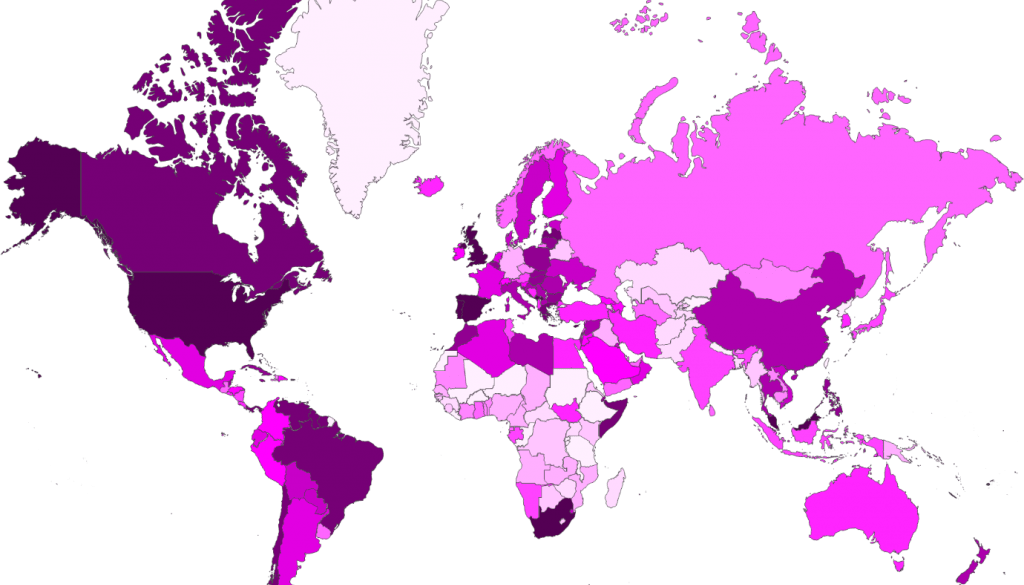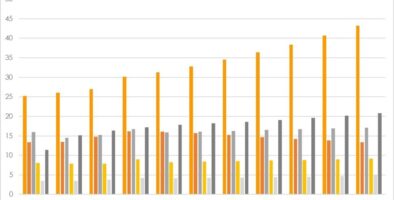Corona Risk Exposure By Country
Corona shock exposure: Covid 19, sustainability, and competitiveness, country by country
What does basic data tell us about country’s public health and economic risk exposure to the corona pandemic? Download the full analysis (health impacts, economic impacts, combined corona impacts) here: Corona Risk Exposure by Country
Basic health care and economic performance data – quantitative measurable data – can tell us about the potential impact of the COVID-19 pandemic on different countries – both in terms of the toll on health and the economic consequences following the global shutdown.
(Note: This is meant to be neither perfect nor absolute. Basic data cannot tell us about the quality and speed of crisis management, which obviously has a very high influence on final outcomes.)
Covid-19 risks
This analysis describes a country’s combined risks to health toll and the downward economic risks before the pandemic. Key observations include:
- The US is 3rd on that list, with the risk factors 20% higher than the global average
- Some African countries seem to be lesser exposed – mostly due to the small size of the risk group (the Elderly), and high employment in the agricultural sector (employment in the basic needs sectors is low-payed, but comparably safe in times of economic downturns)
- Europe is a mixed picture with below average risk exposure (e.g. Germany) to higher-risk exposure (Spain, Portugal)
- China’s risk exposure is 8% above the global average
- Some highly populated developing nations (e.g. South Africa, Indonesia) are significantly above the global average
Crisis management: Korea!
An equal – or even bigger – influence on the final toll of this distressing pandemic has the crisis management. The different responses in different countries unfortunately cannot be measured quantitatively. However, we already have certain data from different countries available that indicates what works (and works not so well). The accuracy of this data is questioned by many; however – even considering the unreported/not tested cases -the data shows a very clear picture: forward step South Korea.
Corona cases per capita (source: www.corona-data.ch)
The data is very, very clear: Korea is on a far flatter trajectory than all of the Western nations. The actions that have set Korea apart are:
- Very early risk awareness
- Rapid development of huge testing capabilities
- The rapid deployment of contact tracing technology
- Societal discipline 1: people didn’t go out and party. The lockdown did not have to be enforced because – for whatever reasons – Koreans stay at home voluntarily
- Societal discipline 2: everybody is wearing a face mask. While probably not 100% protective, the chance that an asymptotic carrier of the virus infects others is most likely lower (to what degree is not yet known). And as we came to know, every step counts in this fight.
Our systems are neither sustainable nor competitive
Unfortunately, government responses are often managed in a political environment rather than on a scientific basis. What this pandemic also shows – our systems are not sustainable (if not to say broken). They are not up to the task of protecting societies from disruption – neither in terms of health, nor economically. From a management stand-point of view, they are simply inefficient. Not competitive. And therefore, not sustainable.
Which raises the question: what are the alternatives?
Download the full analysis here, including risk exposue to public health, risk exposure to economic fallout, and the combined risk of both (PDF, 10 pages): Corona Risk Exposure by Country
Download the data here (excel file) Country Covid Risk Exposure Data





